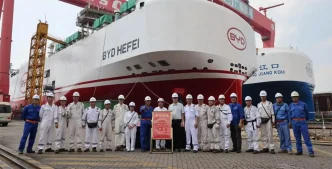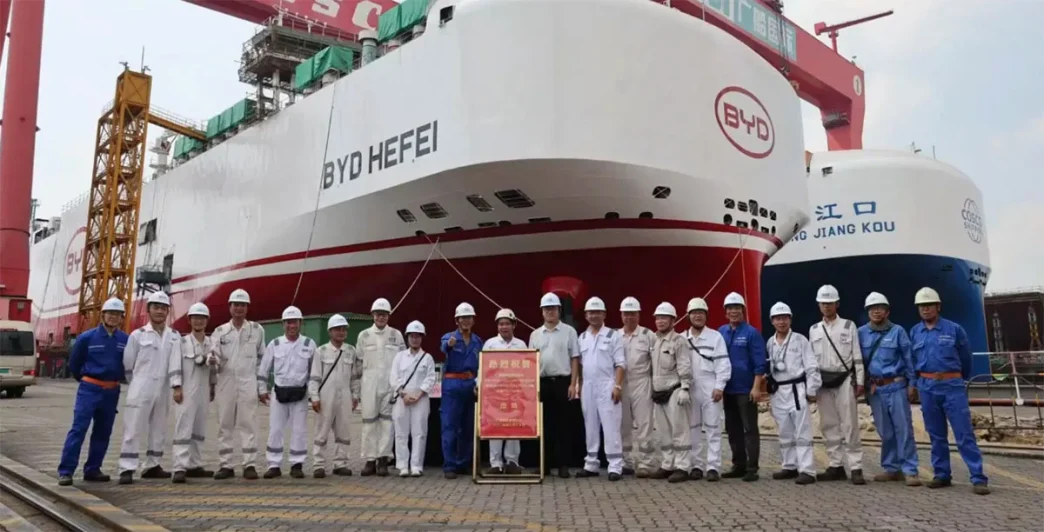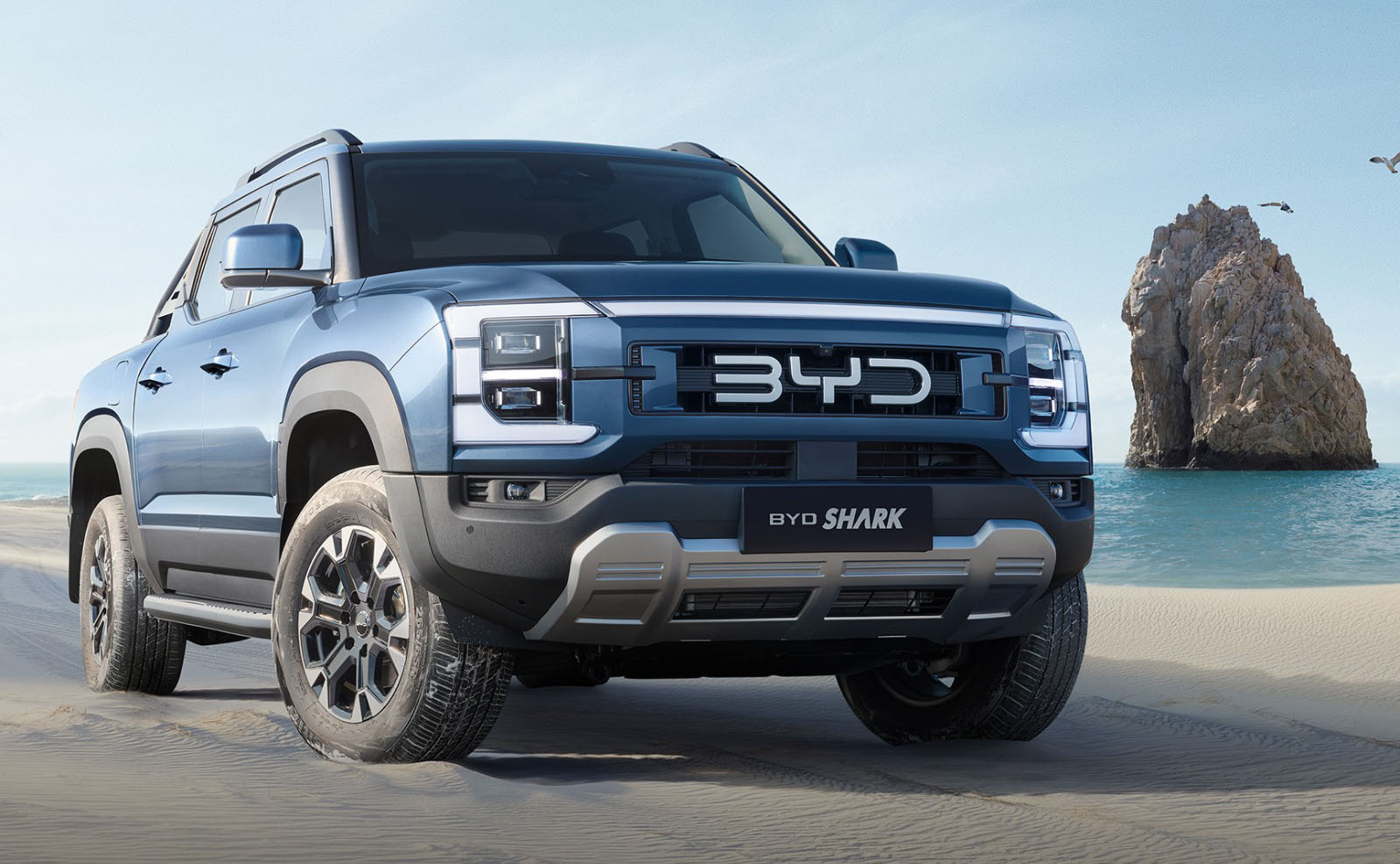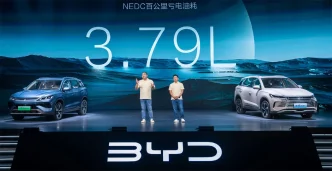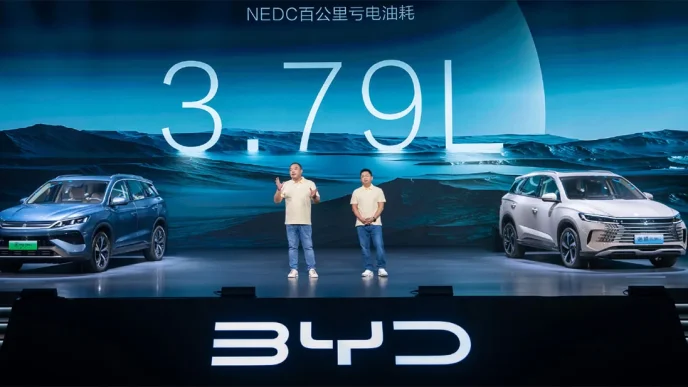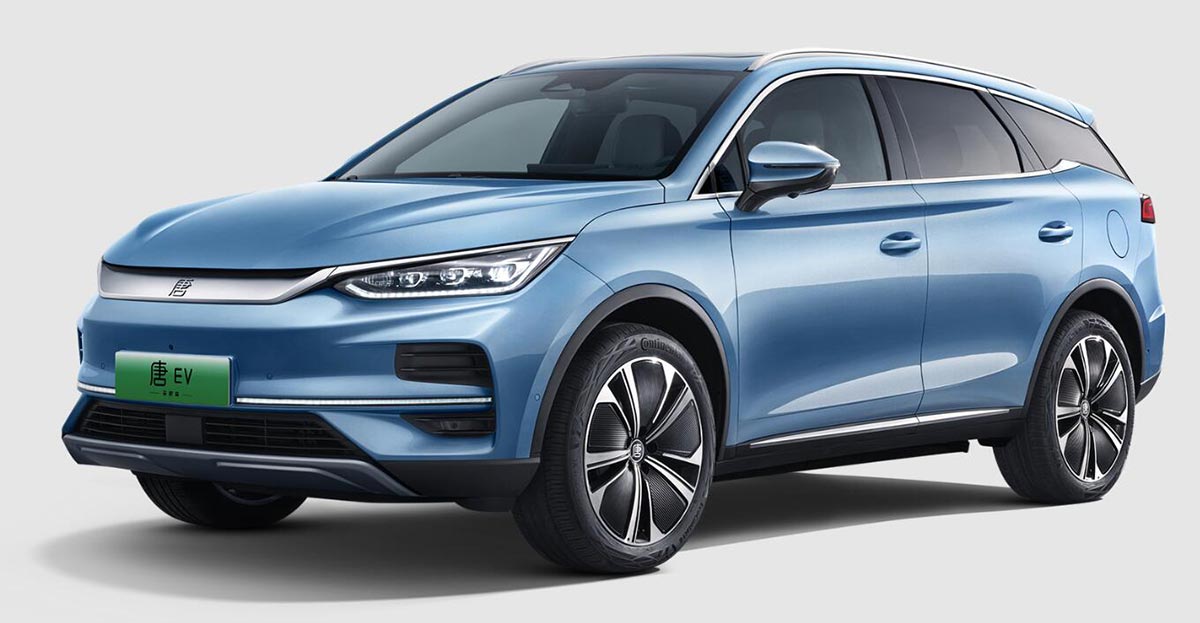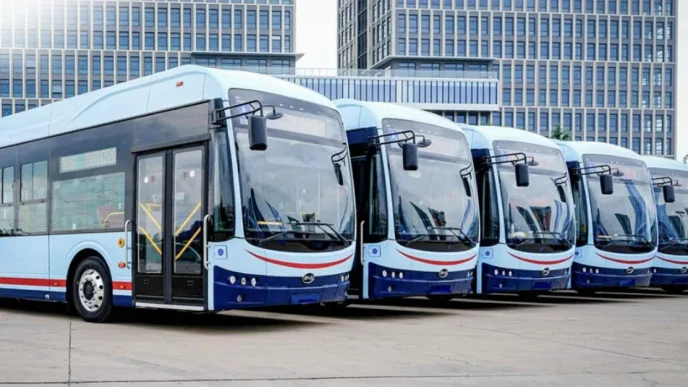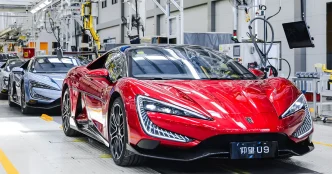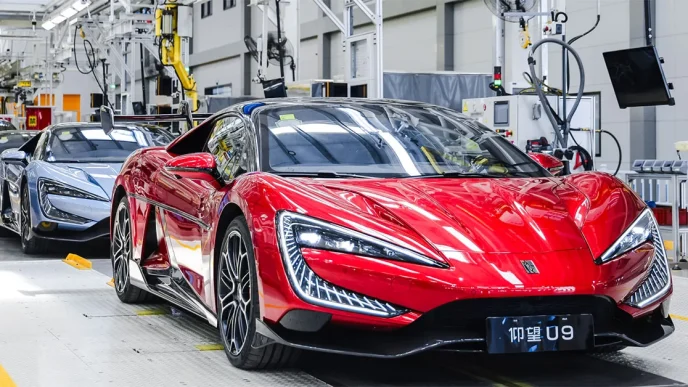BYD, China’s leading electric vehicle (EV) manufacturer, is ramping up its global expansion efforts with the launch of its second car carrier. The new vessel, named BYD Hefei, was unveiled during an undocking ceremony held by Guangzhou Shipyard International over the weekend.
This marks a significant step in BYD’s strategy to strengthen its logistics network as it seeks to dominate the global EV market. The company plans to introduce a total of seven new car carriers over the next two years.
The BYD Hefei can transport up to 7,000 vehicles and will undergo a series of tests before officially commencing operations. It is the first car carrier fully owned by BYD, differentiating it from the Explorer No 1, which was delivered in January and built in collaboration with Zodiac Shipping. The Explorer No 1 has already completed two European trips to Spain and Germany, in addition to docking in Brazil. According to Guangzhou Shipyard, the BYD Hefei is one of two vessels the shipbuilder is constructing for BYD, marking the beginning of a long-term partnership between the two companies.
BYD’s expansion comes at a time when the company is breaking sales records. In August, BYD sold 373,082 new energy vehicles (NEVs), which include both electric and plug-in hybrid models, marking the third consecutive month of record-breaking sales.
Of these, 145,627 were fully electric vehicles, pushing BYD’s total EV sales for 2024 to over one million units. Overseas markets also saw robust growth, with BYD selling 31,451 vehicles internationally, a 26% increase from the same period in 2023.
As BYD strengthens its global logistics capabilities, the company is also planning to increase local production in key markets, including Turkey, Pakistan, Mexico, and Brazil. These efforts are aimed at boosting market share in regions where BYD is already one of the top-selling EV brands, particularly in Brazil, Mexico, and Southeast Asia.
With a growing fleet of car carriers and expanding manufacturing operations, BYD is positioning itself to capture a larger slice of the global EV market over the next few years.
Source: CnEVPost, Guangzhou Shipyard International

